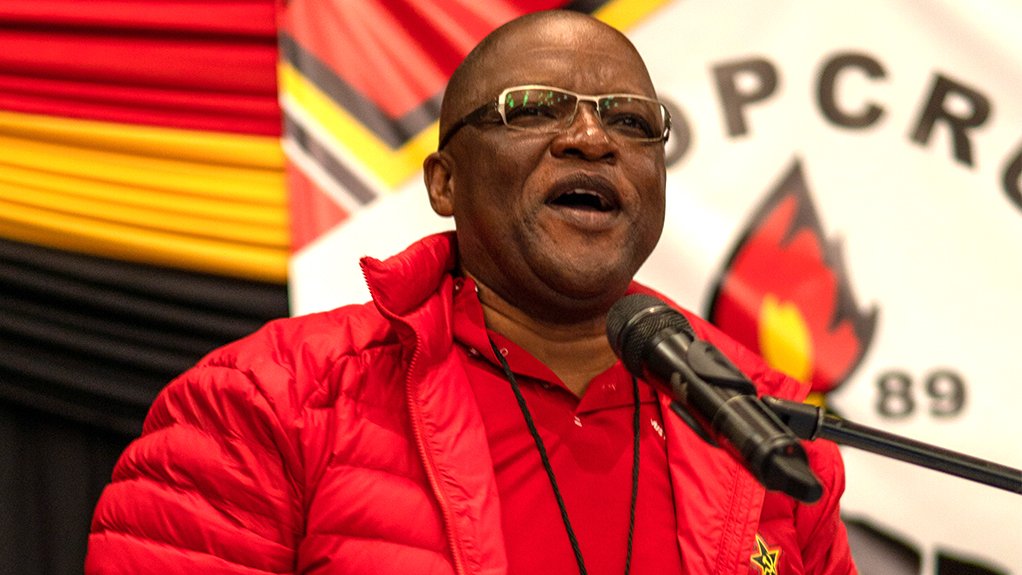Poor conditions and examples of physical violence in our women’s prisons is an uncomfortable subject that remains overlooked in our society. But as the country celebrates Women’s Day this month, it is important not to ignore or overlook the many vulnerable and forgotten women in our country’s prisons.
Female prisoners face many terrible experiences in our prisons, including physical assaults and violence. Many of these women have already suffered abuse and violence in their lives outside of prison, and yet they are subjected to additional trauma within its walls. This is made worse by extreme overcrowding, a shortage of correctional service officers to ensure their safety, and a lack of an effective reporting mechanisms. This is a disturbing cycle that we cannot ignore any longer.
Fortunately, government is actively taking steps to lower cases of GBV in women’s prisons. In 2022, 1 683 employees were trained on understanding and preventing GBV, and 692 received trained against sexual harassment. But more needs to be done to ensure that female inmates have better lives in prison to give them the best chance of rehabilitation.
Our prison warders must consistently receive the correct training and resources, and prisons must substantially increase staffing numbers to better protect our female inmates from any further physical or emotional harm.
Issues in women’s prisons are not limited to physical violence
In exploring the issue of violence and poor living conditions, it is vital not to overlook the role of overcrowding as a main driver.
Overcrowding lies at the root of numerous problems that female prisoners endure every day. South Africa houses between 3 000 and 4 000 female inmates each year. But our nation’s prisons have surpassed their intended capacity, and are now housing two to three times the number of inmates they were built for.
This overcrowding not only deprives these women of their dignity but also exacerbates tensions and leads to increased violence within the prison walls. Additionally, it places pressure on the resources needed to provide adequate medical care, or to see to their hygiene and reproductive health needs.
Some may argue that conditions are slightly better for sentenced prisoners in certain facilities, where access to education, vocational programmes, social workers, and psychologists is provided. However, the reality remains bleak for the majority of incarcerated women. And the shortage of wellness and healthcare assistance poses a grave threat to both these women and their children, some of whom are born behind bars and face an uncertain future from the moment they are born.
Unhygienic conditions, and the scarcity of bathroom facilities and the necessary hygiene products, create an environment where privacy and dignity are luxuries rather than rights. The inadequate provision of water and cleaning materials further compounds the unsanitary conditions, leading to severe health issues amongst incarcerated populations.
Female inmates have a right to dignity and health
South Africa's Constitution grants all individuals the right to conditions of imprisonment that are aligned with human dignity, but the reality of conditions in our prisons falls far short of this mandate. The Correctional Services Act itself also outlines proper conditions for prisoners, stressing that their dignity should be respected, and their basic nutritional, healthcare, and wellness needs should be met.
It is time to break the silence and raise awareness of the violence and poor living conditions in our prisons, and to demand urgent action from our government and society for positive change. Female prisoners represent perhaps the most marginalised and vulnerable women in our society, and should not be punished unduly as they serve their sentences for their crimes. Prisons should be places of rehabilitation, not suffering.
It is high time that we unite as a nation to address this injustice. By turning a blind eye to the abuse faced by women in our prisons, we betray the very essence of our democracy which promises dignity, equality and fair treatment for all.
Written by Police and Prisons Civil Rights Union President Zizamele Cebekhulu-Makhaza
EMAIL THIS ARTICLE SAVE THIS ARTICLE ARTICLE ENQUIRY
To subscribe email subscriptions@creamermedia.co.za or click here
To advertise email advertising@creamermedia.co.za or click here











